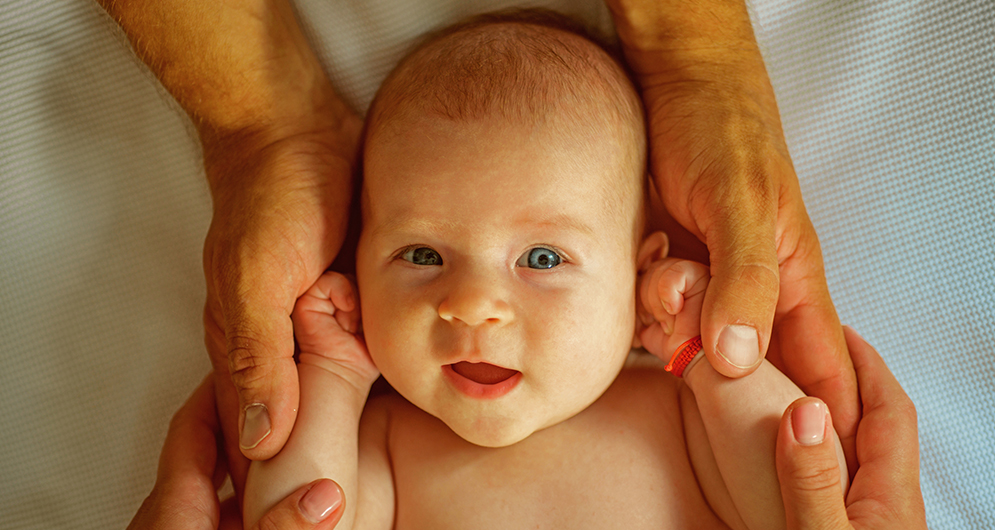Hi, do you have a newborn baby? Or about to bring your little bundle of joy into this world? Congratulations! As first-time parents, this feeling can be a bit overwhelming. One of the common questions every first-time parent asks is, “What exactly should I do after bringing my newborn home?” Are you aware of the newborn care tips? The answer to this question depends on a variety of factors, not just your baby’s gender and family history. Are you about to be parents? Then you also need to be aware that there are hidden diseases that can affect their little ones at any point in life, even before birth or during infancy. To have an idea about these risks, you must know about Newborn Screening! Screening helps identify complications with vital organs and offers tips on what might be causing them so you can take action as soon as possible.
We’ve compiled this guide with newborn essential needs along with newborn screening that will help you find all that you need to know as a new parent without having to spend hours searching online.
What is Newborn Screening?
Newborn screening is a simple, painless test that involves taking some drops of blood from your baby’s heel. The sample is then tested for certain conditions which are treatable if detected early on in life. These tests can lead to earlier diagnoses and treatment than would otherwise be possible, which improve these children’s long-term health outcomes.
This screening is not just limited to a blood test but also include hearing and visual screening.
When Does Newborn Screening take Place?
The newborn screening takes place when your baby is about a day old.
– The test will happen right after the birth of the child and then again when he/she reaches three months – both these times, it would be painless to take some drops of blood from their heels.
– There are also other screenings, such as hearing tests which need to be done within a few days of being born, so if you have any worries or concerns, do consult with your doctor at this time.
– If there is anything abnormal in the newborn screening report, parents should definitely get a second opinion because sometimes even doctors can make mistakes. You could ask for an MRI scan just to confirm that nothing important has been missed out on during testing.
– If you have a family history of any condition that is being screened for, then ask your doctor to check whether it would be safe and recommended to test your baby as well.
What Kind of Health Conditions are Tested in Newborn Screening?
Newborn Screening tests for a variety of conditions some of these are:
- Organic acid metabolism disorders
- Congenital adrenal hyperplasia
- Galactosemia
- Hemoglobinopathies, and for diseases like sickle cell disease, thalassemia and other haemoglobin disorders.
- Maple syrup urine disease (MSUD)
- Phenylketonuria (PKU)
- Congenital hypothyroidism
- Cystic fibrosis.
Newborn Screening is important because it allows for the early detection of any disease/condition that your baby might have inherited from either parent, even before symptoms show up, which enables you to take appropriate steps and seek treatment at the earliest possible time. You should also know newborn care tips
What Are Some Other Important Things Every Parent Should Know regarding newborn care tips
Apart from knowing all about newborn screening, it is also important that parents know how to take care of their little one during this crucial period. Here are some basic newborn care tips:
Hygiene: It is critical that parents are aware of the hygiene needs of newborns. Parents need to be careful about washing their hands before touching or holding their baby.
Proper Feeding: Babies should be breastfed within an hour after birth to get rid of any meconium in their stomachs which can lead to further complications. Breastfeeding also provides babies with essential colostrums, a form of immunity against various diseases like diarrhoea. Breast milk provides every nutrition a baby needs in his first six months, so it is important that mothers feed the baby if her body allows it.
Sleep Positioning: Babies should always sleep in the supine position (on their backs) as this prevents sudden infant death syndrome (SIDS). The crib must contain breathable mesh sides with no blankets, pillows etc., which can cause suffocation. Also, avoid letting babies sleep on couches, chairs or beds without firm arm support.
Bathing: Newborns should be given sponge baths to begin with, and then full body washes after about a week. A baby must not be put under water until five days of birth as their skin is very delicate during this time period. Parents need to use lukewarm water for bathing the baby so that s/he does not catch a cold.
Postpartum Checkups: Mothers should consult a doctor immediately in case of excessive bleeding, fever or severe abdominal pain. If the mother is depressed after delivery, it can have adverse effects on newborn health. Timely treatment for post-delivery depression and other mental illnesses will help prevent any complications from arising later down the line.
Conclusion
Newborn screening is important to ensure that your baby’s health care starts off on the right foot from day one. Parents should also be aware of all newborn care tips and get regular checkups done, so they know their baby is healthy, growing well and developing normally. If you have any concerns or queries related to your baby’s health and well-being, Motherland Hospital is here for you. Book an appointment with the top pediatrician in Noida!

